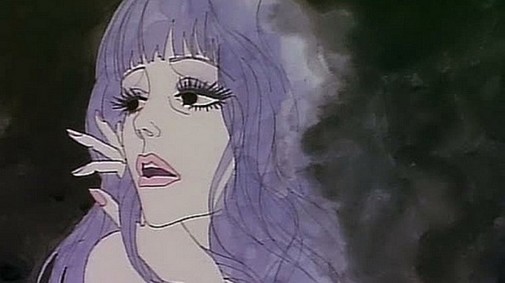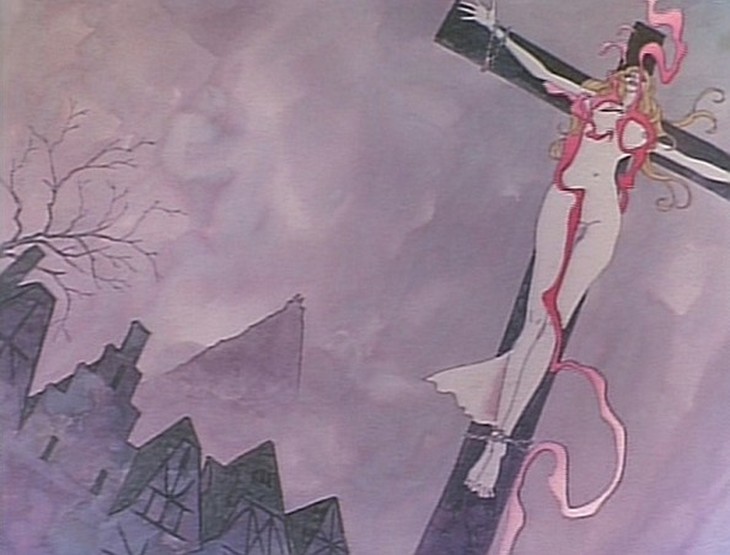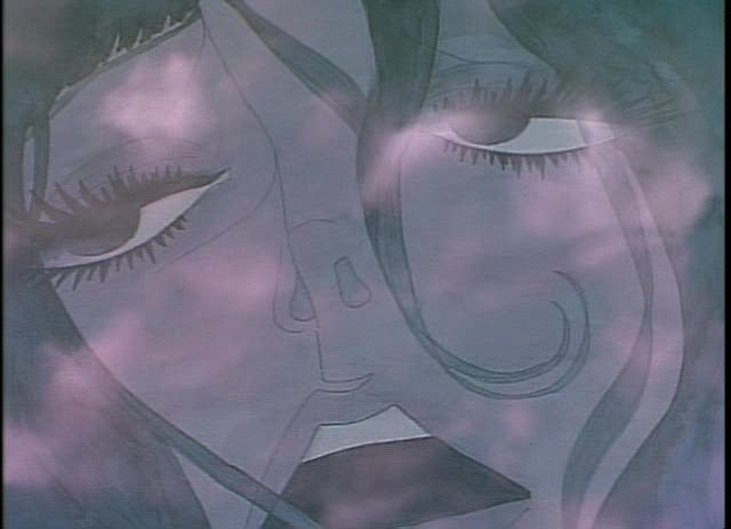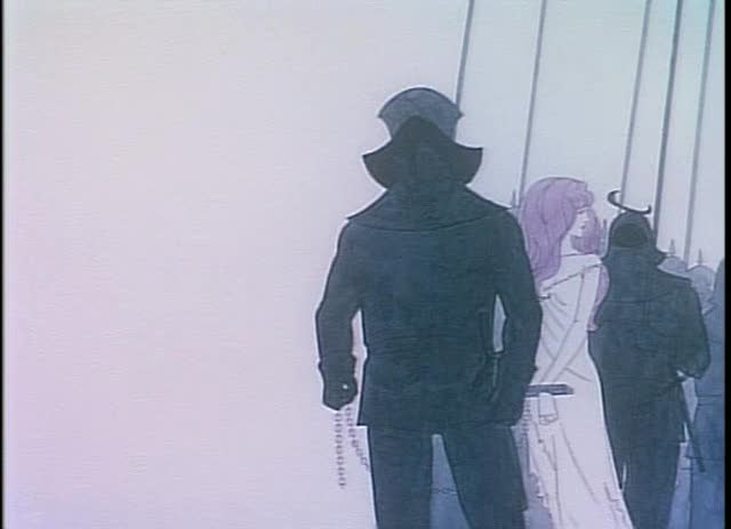 Eiichi Yamamoto's Belladonna of Sadness is a well-crafted, avant-garde Japanese animated film which tells the tragic story of Jeanne, a beautiful peasant woman who is raped by the land baron of her village on her wedding night due to her and her soon-to-be husband failed to pay the province their marriage taxes. Rejected by her husband after the act, Jeanne makes a pact with the devil in an effort to gain wealth and power she has never possessed. Her newfound power doesn't come without consequences though, as the land baron subsequently banishes her from the village suspecting witchcraft is at play. When the bubonic plague engulfs the town, the baron has a change of heart about Jeanne, asking her to save the town from its newfound darkness, offering up a rank of highest noble in return for her services. Loosley based on the 1862 book La Sorciere by Jules Michelet, Belladonna of Sadness is a story of resistance, a tale of anti-authority through the lens of feminism. Belladonna of Sadness is quite avante-garde, a film that is certainly up to interpretation, but with aspects of Jeanne's tale drawing direct parallels with Joan of Arc, the salem witch trials, and other prominent woman in history, it's a pretty objective opinion that Belladonna of Sadness is a film that has something to say about the oppression of the patriarchy through history with Jean being a strong woman standing up to the forces that be, a film that is overly sexualized, intent on touching on the sexual liberation for females through its beautiful hand drawn animation. The film is visually striking and direct, but also nuanced at times, subtlety capturing the day-to-day oppression a female has endured in the past. One example of this is Jeanne's husband, a man who seems to generally care for her though he views her almost entirely through the lens possession. When he tries to plead with Jeanne to come back to him towards the end of the film, he intends to be heartfelt, but his words the possessive perspective in which he views the female form. I'm by no means an expert when it comes to Japanese animation, having only seen a handful or so of the more acclaimed works, but even still the animation in this film feels simply stunning by comparison. Hypnotic and transfixing, nearly every frame serves as a canvas of pure artistry, with the filmmakers creating a surrealistic, feminist portrait where most of the story-beats are told through stoic tableaux, with Jeanne's inner thoughts and feelings being told in expressive animation. The bubonic plague sequence is one of my favorites in the film, a surrealistic nightmare of death, darkness and despair. Simply put, Eiichi Yamamoto's Belladonna of Sadness is a surrealistic, feminist work of art, that should be seen.
0 Comments
Leave a Reply. |
AuthorLove of all things cinema brought me here. Archives
June 2023
|



 RSS Feed
RSS Feed
